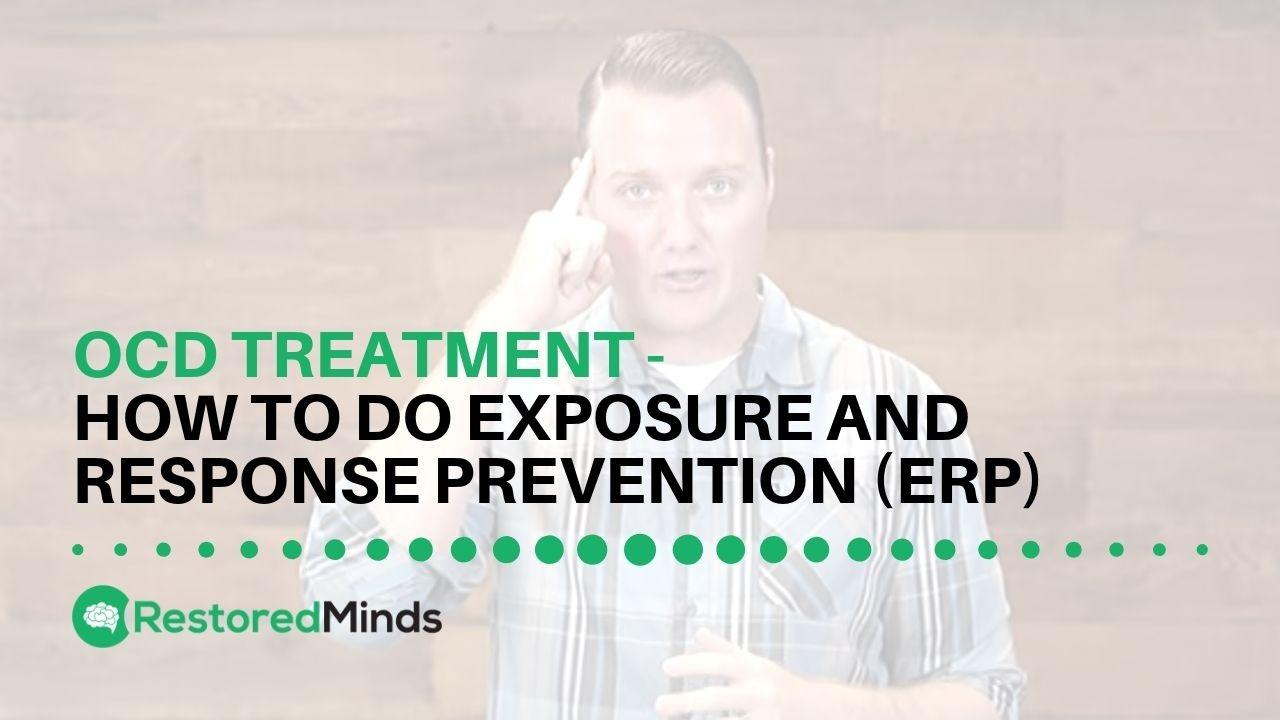OCD Treatment - How to do Exposure and Response Prevention
Aug 07, 2018
Mastering ERP for OCD: A Guide to Effective Exposure and Response Prevention
Welcome to Restored Minds! In this post, we dive deep into Exposure and Response Prevention (ERP), a cornerstone of OCD treatment. If you've ever wondered what ERP is or how it works, you're in the right place. As someone recovering from OCD or supporting a loved one going through it, understanding ERP can significantly aid your journey towards better mental health.
Introduction to ERP
ERP stands for Exposure and Response Prevention. It is a behavioral therapy approach specifically designed to help individuals with OCD confront their fears and prevent the compulsive behaviors that those fears trigger. Matt Cotti, a licensed clinical social worker, and the founder of the OCD Academy explains that ERP involves two key components:
-
Exposure
: Facing the object, situation, or thought that triggers anxiety.
-
Response Prevention
: Resisting the urge to perform a compulsive behavior in reaction to the anxiety.
Why ERP is Effective
Our behaviors are often more within our control than our thoughts and feelings. While changing intrusive thoughts or unpleasant feelings directly can be incredibly challenging, modifying our behavior and reactions is more achievable. ERP leverages this by changing how we respond to anxiety-provoking situations. It works because:
-
Behavioral Control
: By preventing compulsive behavior, we start to break the cycle that reinforces OCD.
-
Habituation
: Over time, continual exposure to the fear-inducing object or thought without performing the compulsion leads to decreased anxiety. This is known as habituation.
The Role of Habituation in ERP
Habituation is the process where repeated exposure to a fear-inducing stimulus leads to a reduction in anxiety over time. Matt shares a personal story from his treatment journey to explain this. His fear of demons led him to watch the movie "The Exorcist" repeatedly. Initially, this induced intense anxiety, but with multiple exposures and preventing compulsive responses, his anxiety diminished over time.
Steps to Habituate Effectively
-
Repeated Exposure
: Watch or face the feared object or situation multiple times.
-
Prevent Compulsive Responses
: Refuse to engage in behaviors that temporarily reduce anxiety but reinforce the OCD cycle.
Common Mistakes in ERP
It's important to conduct ERP correctly for it to be effective. Common pitfalls include:
-
Being Thrown in the Deep End
: Taking on extremely challenging exposures too soon can overwhelm you and reinforce avoidance behaviors.
-
Lack of Systematic Approach
: Not having a structured method to gradually face fears can lead to inconsistent results.
Creating an Effective ERP Plan
1. Develop a Hierarchy: List fears and anxieties in order of intensity. Start with lower-level fears and gradually move to more challenging ones.
2. Implement Gradual Exposure: Begin with less distressing items on your hierarchy to build confidence. For Matt, this meant starting with less frightening movies before watching "The Exorcist."
3. Prevent Compulsions: Identify compulsive behaviors with tools like a compulsion inventory. Knowing what to avoid is crucial in preventing these responses.
Free Resource to Help You Get Started
Matt has put together a free Compulsion Inventory to help you identify behaviors to target in your ERP process. Click here to download it and kickstart your journey towards effective OCD management.
Conclusion
Mastering ERP is a critical step for those dealing with OCD. By understanding and correctly implementing ERP – focusing on gradual exposures and preventing compulsive responses – you can work towards habituation and significantly reduce the impact of OCD on your life. Stay tuned for more resources and tips on the Restored Minds YouTube channel and blog.


